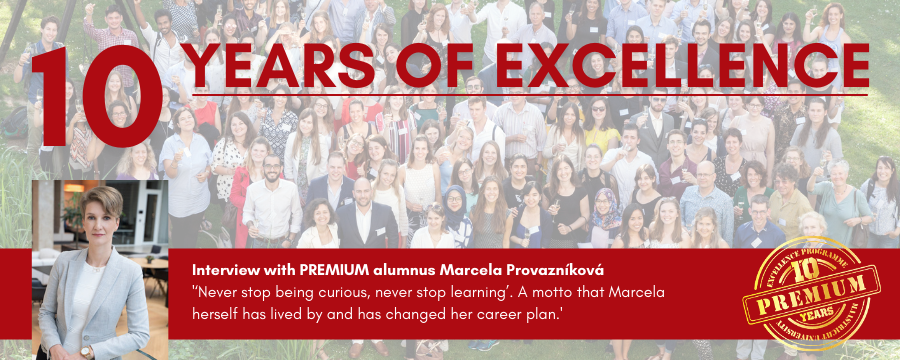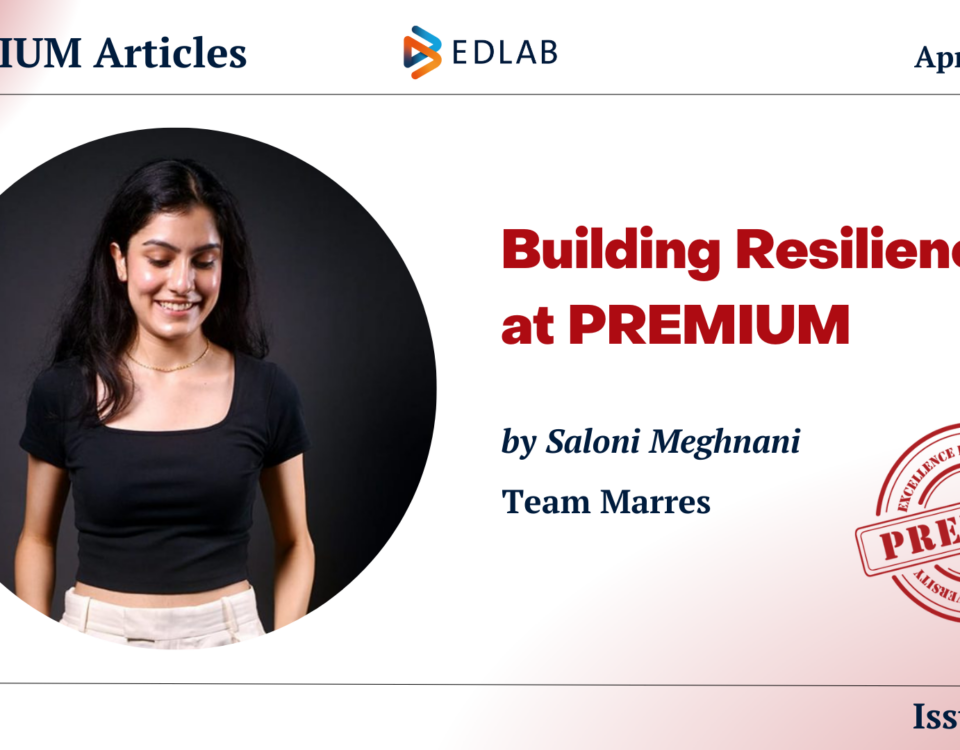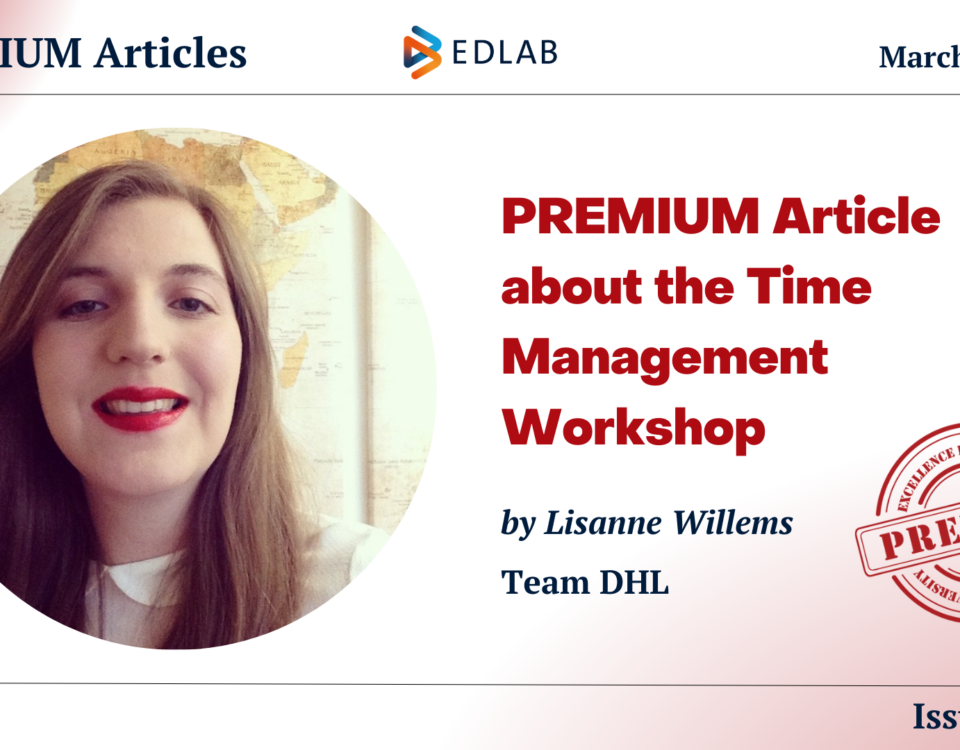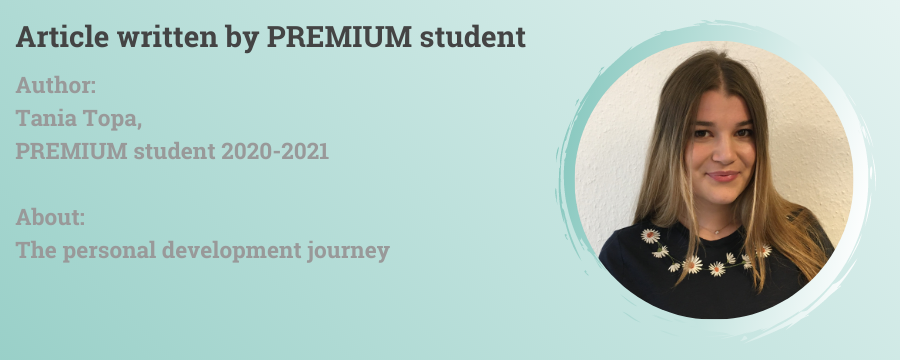
My first coaching session: Working in a team, but discovering myself
11-03-2021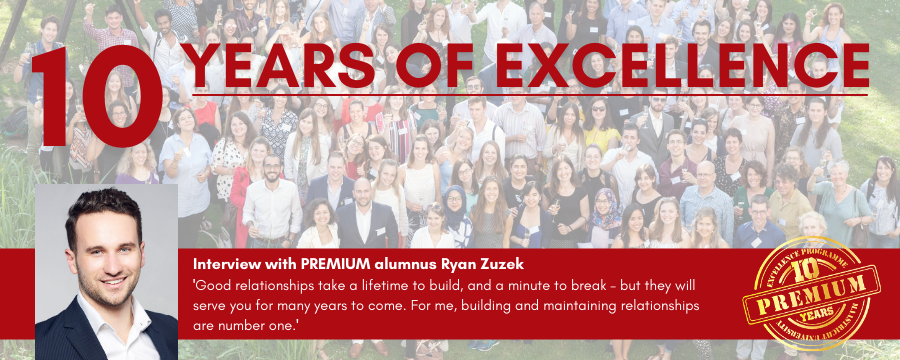
10 years of PREMIUM – A decade of Excellence
22-03-2021In honor of 10 years of PREMIUM, we look back on what a decade of PREMIUM has meant for our alumni, coaches, mentors, clients and trainers.
Marcela was a Msc student at the FPN faculty, Work & Organizational Psychology. During PREMIUM, Marcela was part of the project team for client Team Focus (academic year 2018 – 2019).
‘Never stop being curious, never stop learning’. A motto that Marcela herself has lived by and has changed her whole career plan. In 2004 when she started to work for a retail bank in Prague, she would have never thought that she would grow from a bank clerk to a manager. Soon, she realized that the most meaningful part of her job was taking care of people, their growth and motivation. So after she got her undergraduate degree in psychology she came to Maastricht University, eager to start a new career path. Having had many years of experience in business and management, she decided to become an Organizational Psychologist Practitioner.
Her experience in management, her learning curve through university and PREMIUM, has resulted in becoming a manager at Deloitte at the Human Capital Advisory Services. She is responsible for the management of consulting projects and consulting clients in topics related to people in the organizations. With a focus on leadership and workforce transformation, analysis of complex functions such as HR and design of the interventions, she is currently very comfortable with her job, yet challenged.
Could you take us back to when you started with the PREMIUM programme as a student; What kind of student were you? And have you changed personally?
‘I am a learner; I always need to be fully prepared and I studied a lot. Until today, I sometimes still have nightmares of taking an exam that I totally did not know about and was not ready for! I’m still the same person at work actually, so I did not slow down for one bit.
Though, what I learned and how I changed, is that young people nowadays are so smart. You come from such interesting backgrounds with interesting and innovative ideas. In class, I was usually 10+ years older than the majority. At some point, I realized that I really had to listen and learn from others. This was a big lesson for me. In PREMIUM, I had the exact same experience; I will always remember these mind-bending exercises with Arie van der Lugt (at that time mentor of Team Focus project team) that stimulated our thinking and challenged us on completely different levels. These exercises focused on trust building, communication and collaboration in our team. It was a confirmation for me: you never stop learning.’
What was your initial idea when you graduated, did you have a plan or idea of what you wanted to do professionally? Has this plan/idea changed in the meanwhile?
‘When I was entering university, I came in with a very precise idea. After having had a career and lots of experience already, I deliberately made a decision what I wanted to do next: to work as an active practitioner of work in organizational psychology. The Msc at FPN helped me in fulfilling my goal. After graduation when I came back to Prague, I decided to join Deloitte, a large organization where I could gain a lot of experience. While working here, I realized how useful it is to have both backgrounds: Business and Psychology; I have experience in the internal and external role in organizations and combining these experiences makes me successful in my job position at Deloitte.’
What was your first real milestone in your working experience, and has your PREMIUM experience contributed in this?
‘The very first project at Deloitte was immediately linked to what I had learning during my studies. I had gained theoretical knowledge, based in the up-to-date research that I could immediately apply. That was basically why I was hired for this project.
My PREMIUM experience was incredibly useful to me. I chose Team Focus and the entire experiential learning concept in this project was very useful. Everything I had learned since my very first day in Team Focus, I was using in my first project; learning through experience, challenging people at different levels, achieving a high level of trust. I experienced it as a toolbox; all these different tools were an inspiration in my future work.’
The current pandemic and working from home has given everyone an extra challenge: how do you cope with this?
‘We need to be clear with setting boundaries for ourselves. We have been working more; you can finish one meeting at 17.30 and immediately start another one at 17.30 and there is no break. We can log off but we can never disconnect. What I also often see, is that the aspect of trust building among virtual team members is often overlooked. This is absolutely valid and in PREMIUM, we often discussed the importance of this. There I learned about the ‘Pyramid of trust’ concept by Lencioni – a concept I use every day.
For building trust when meeting someone in person, 6 informal interactions is enough. In a virtual setting it is 16 informal interactions. People are not paying enough attention to this trust-building element. There is ‘simply no time for that’ it seems, which is a pity because it negatively affects the results and the workflow. This needs to be pointed out and attention should go back to this informal time for interaction. So far, working from home works well for me, but I’m really missing the regular personal contact.‘
What powerful advice would you give to the current generation of PREMIUM graduates?
‘Actually, my colleagues and I are working on lectures for the University of Economics in Prague on the topic of Organisational Learning. What we learned is that new people are joining an organization being energetic, curious and motivated, happy to learn new things. But after some time, you can see them getting drowned in operational tasks, structures and bonded by the formal boundaries, leaving them no time for learning.
So if I could give one advice to everyone who is graduating from PREMIUM and starting at a workplace: just never stop being curious! Do not let yourself get tied up with the internal rules, structures and politics. It is always a good idea to ask why. Why am I supposed to do this, why do we want to do this, how does this fit into our strategy? Do not sit silent, because you will learn nothing. Instead, figure out new things, exchange information with other people, get perspective from someone else. That is really important.’
When you applied for PREMIUM, you already had quite some (professional) experience. Therefore, we wonder if you were still challenged enough by the PREMIUM programme? How did you benefit from the programme?
‘The biggest benefit was the client – Team Focus. Team Focus was doing exactly what I was interested in doing professionally, and so I knew I could learn a lot. That was a big plus. Second, the unique structure, the diversity and the different backgrounds of the team members in my PREMIUM team, is something that you can hardly ever experience in the normal setting at the work place. 99% of the time, you are working with the same colleagues. In PREMIUM, we had students from all different faculties and disciplines. It is fantastic to have so many different perspectives. Now, in my work, I never forget to make these connections with different parts of organizations to get a broader context and to challenge our views. This diversity of backgrounds and disciplines was quite a unique experience and I recommend everyone to keep this element in mind forever.’
To round up – what is your best PREMIUM memory?
Definitely meeting new people. During our very first team meeting we started this icebreaker game ‘Two truths and one lie’ and a team member stated: ‘I was born in a country that no longer exists’, being Czecho-Slovakia. And I was shocked, because I too was born in a country that no longer exists. Surprise, Slovakia as well. Suddenly, we realized that despite speaking different languages, we were born 150 km away from each other. That was quite special. Funny thing how small the world actually is.

